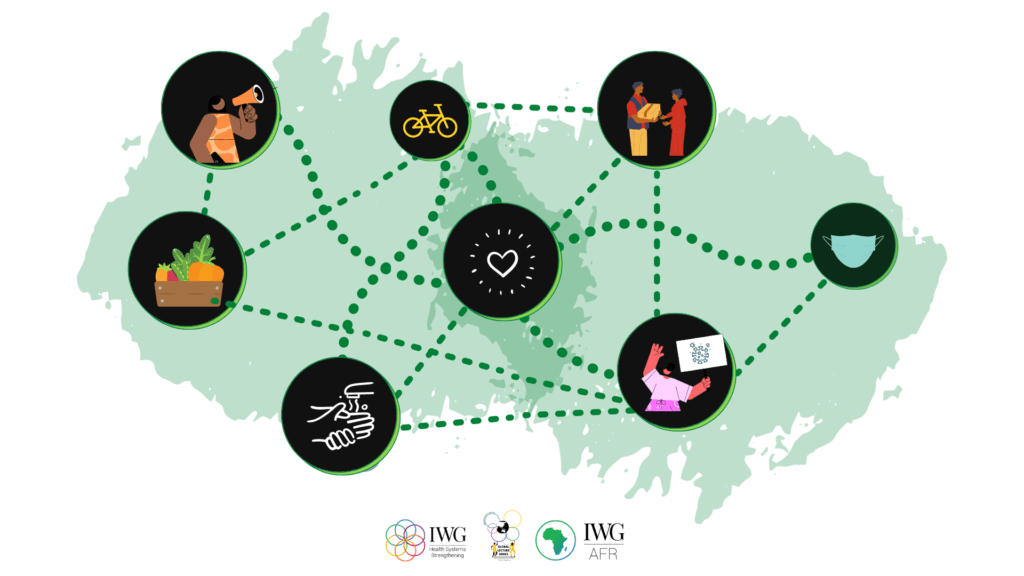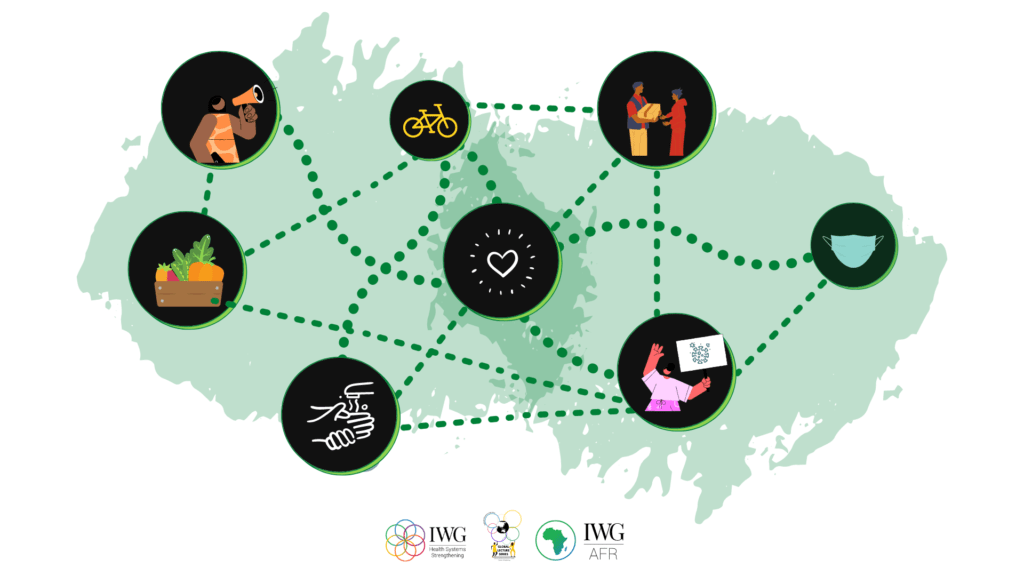
In March 2020, the government enforced a lockdown to curb the spread of SARS-CoV-2 in Cape Town, South Africa. However, in this divided city, historically under-resourced areas lack access to basic water and sanitation amenities, secure food sources, and the ability to isolate upon exposure to the virus. In a unique, informal, and rapid response to a pandemic that amplified pre-existing social and systemic issues in the area, neighbour-based teams rose to the occasion. What became known as Community Action Networks (CANs) mobilised early during the lockdown, recognizing that community-led initiatives are often an afterthought in public health emergencies. About 170 of these networks have been working together to meet the specific needs and complex challenges in their communities without a “one size fits all” motto, falling under the umbrella network of Cape Town Together whose foundations of relational trust promote social participation and engagement.
On February 26, the African Regional members for the International Working Group (IWG) for Health Systems Strengthening convened a panel with key members of CANs from different communities. Panelists from Cape Town Together included Pamela Silwana, a member of the Gugulethu CAN and an organiser with the movement Organising For Work; Nadia Mayman, a member of Bonteheuwel- Joint Peace Forum CAN and a facilitator at Violence Prevention Through Urban Upgrading; and Dr Leanne Brady, Salt River CAN member, doctor in Emergency Medical Services, Western Cape Department of Health as well as a PhD candidate in the Health Policy and Systems Division (UCT). The panelists were asked to share their experiences in the second event of the IWG’s Global Lecture Series (GLS). The GLS aims to reimagine health systems that work for all by convening thought leaders, experts, and young health professionals through global and regional discussions and collaboration. In an effort to explore how inspiring individuals and networks like Cape Town Together span systems boundaries in their formation of a bottom-up response to crisis, three key lessons emerged:
Move at the “speed of trust”: building relationships is a critical part of the strategy
The CAN response relied on the development of new and existing relationships to build solidarity across the network and build on inherent accountability frameworks within communities. The CANs allowed for a partnership in which members were “able to join hands and build relationships so that [they] can tackle these social and natural disasters,” as panelist Pamela Silwana explained. The speed with which these networks formed was “unparalleled,” and their unique bottom-up approach enabled targeted responses that were unique to each neighborhood. The informality of this network and lack of an organisational hierarchy points towards a reimagining of health governance that is people-driven, allowing for community-directed solutions to the complexities we face in current social and economic systems.
Find a way to work with the politics: social participation is crucial for health equity
In addition to highlighting cracks in health systems, the Covid-19 pandemic and responses to it have proven, once again, that health is undoubtedly political. CAN members highlighted that although there were many examples of valuable connections and collaborations with government departments, their rapid, self-organising responses that filled the gaps in formal governance structures also became unintentional political threats in some instances. Despite being non-partisan, non-religious networks, CANs found their work to be deeply political, leading to challenges with political parties. In the beginning, ideas and knowledge were co-produced and shared. There were opportunities for community-level intelligence, generated by ‘professors of the street’ (individuals working on the ground who are able to collect and report on social data, based on their real-world experience) to feed into policy processes. Dr Leanne Brady underscored the importance of an enabling political environment, pointing out, “as the politics became more complex to manage, the possibilities to contribute in positive ways began to shrink. The big lesson is how to find ways for self-organising networks to interface with the health department or with other government departments.”
Bringing the public back into the public sector
Relying on community activists, teachers, doctors, artists and the like to amplify the voices of those least heard, Cape Town Together overcame the spatial, racial and class barriers that separate this “City of Islands” and underpin its health system inequities. The CANs have provided a space for people “on the ground” to make their own voices heard: Pamela Silwana explained that, “because of this network, I was able to have a voice in places where leaders would talk”. She said this enabled her to empower the people in her community to know that even if they are “just on the ground, they are able to fight for [their] voices to be heard.” Dr Leanne Brady elaborated, explaining that, “the community intelligence generated during this response was of extreme value”. Moving forwards, panelists highlighted it’s vital to think about “how to bring the public back into the public sector”.
Ultimately, the CAN response highlights the need for authorities to recognize and legitimize bottom-up responses without perceiving them as a threat. “What would be great is that if we could build on the connections made during this time to build bridges across networks, race and class, and I think the Cape Town Together Network has proven to us that it can happen,” Nadia Mayman reflected. Acknowledging the strengths of self-organising networks to address local issues first-hand is a critical step towards reimaging what a stronger, more responsive health system looks like in any context.
